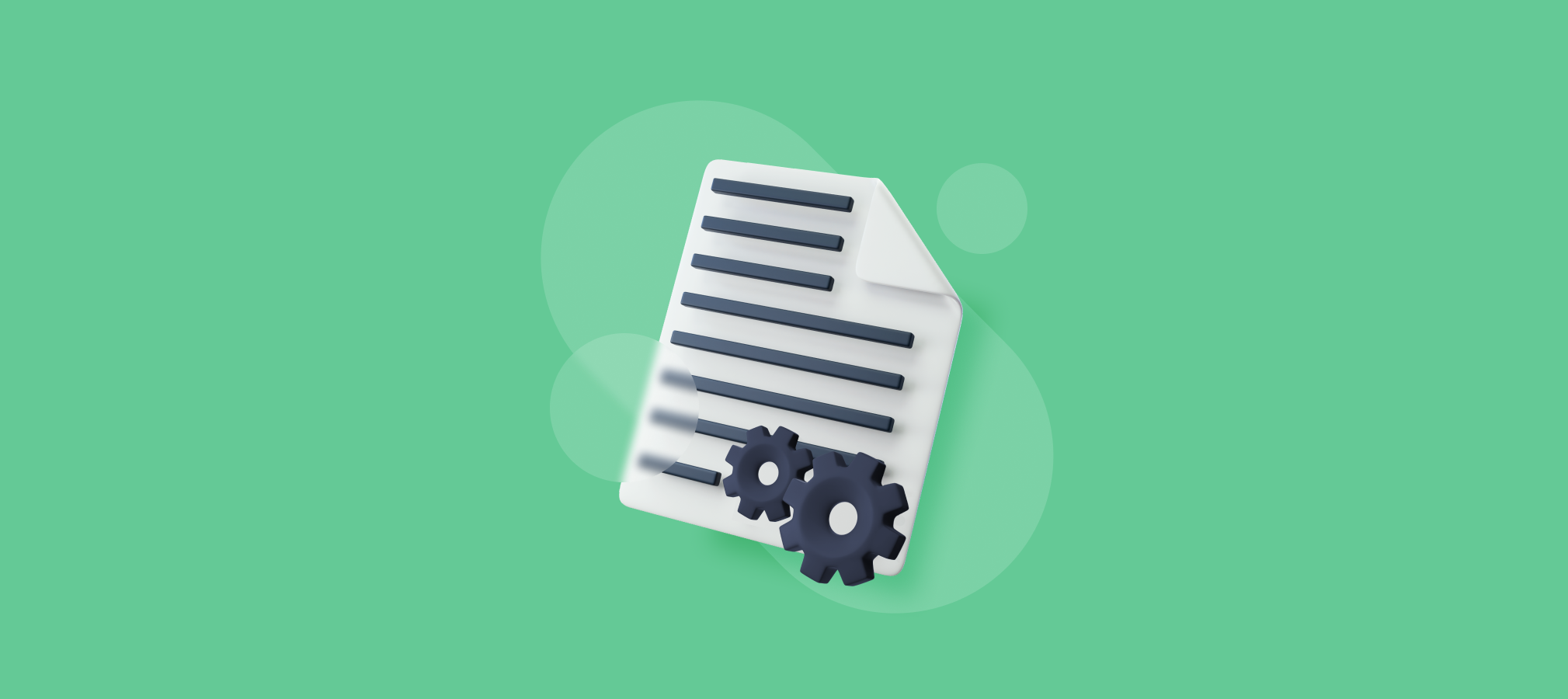What Is A Smart Contract

This blog post will cover:
- Let’s define the notion of a smart contract
- Why are they so smart?
- The advantages of smart contracts
- The disadvantages of smart contracts
In 2021, while some companies are still collecting stacks of papers whenever a deal needs to be made, others are purchasing real estate and fueling vehicles in a few clicks by using smart contracts. It is not simply modern and technologically advanced, but also fast, safe, and confidential. Nevertheless, most people are wary of the fancy term “smart contract”.
Let’s define the notion of a smart contract
Once upon a time in 1990s one talented computer scientist Nick Szabo came up with the brilliant idea of solidifying agreements in the form of digital contracts. The idea implied there wouldn’t be a need in third parties like banks etc. anymore because smart contracts would be self-activating and self-executing (provided that certain conditions are met). This technology would make a huge leap in IT but, unfortunately, the idea could not be put into life until 2008, when blockchain technology saw the wide world.
Szabo supposed that smart contracts would simplify everyday routine in various areas that include public relations of a contractual nature, such as credit agreements, payment transactions, and copyright management.
So naturally a smart contract is a programmed application that tracks and ensures set obligations between parties. The parties set out terms, outline sanctions for non-compliance with the agreement and latch it with the digital signatures. Thereafter the contract itself independently determines whether everything is alright, conditions successfully met, and decides what to do: to complete the transaction and issue the required asset, or impose a fine or penalty on the participants, or cancel access to assets. Thanks to this system the transactions are trackable and irreversible.
A smart contract that exists in the crypto dimension is an app (or program) that operates on blockchain technology and becomes a part of a ledger. Otherwise, the concept is still the same: it's a virtual agreement which is strengthened by a certain set of rules. A computer code determines these rules. The code itself is replicated and executed by all nodes in the network.
Let’s agree that most of us don't like walking into the lion's den and exchange values with complete strangers, right? But since blockchains are usually anonymous we have to do it but the good news is that smart contracts allow users to create trust protocols. This means that both parties don’t need to worry about whether the contract’s obligations are accurately fulfilled or not - if the conditions are not met, the contract is simply canceled.

Thanks to the Ethereum creator and co-founder Vitalik Buterin smart contracts got the recognition it deserved. In 2013 when Ethereum was devised, Buterin was driven to the conclusion that blockchain technology could be more than just a platform for cryptocurrencies. That's how it all began. He put forward the idea of a universal decentralized blockchain platform in which anyone can implement different systems for storing and processing information. The main condition that should be fulfilled is that each action must be upbuilt as mathematical code. He supposed that the most promising area of blockchain development lies in finance, including cryptocurrency, smart contracts, and state registers. For example, the process of a house sale usually takes several weeks when using a smart contract could shorten this time to a couple of minutes.
Bitcoin, as well as Ethereum, uses smart contracts for setting conditions of transactions in BTC. Also numerous other leading cryptocurrencies run smart contract technology. Among them are Polkadot, Cardano, Stellar, EOS, etc.
According to the British magazine, The Economist, smart contracts have the prospect of becoming the most important application of blockchain technology.
Why are they so smart?
A common comparison of a smart contract is to a vending machine. All you have to do is toss a token in it and get what you want. Digital contracts make bureaucratic procedures easier than ever. No need to reach out to the third parties, no need to wait, no need to pay extra fees. As a coin to a vending machine, you “toss” a crypto token into the ledger, and then the document drops into your account.
Moreover, a smart contract validates data by checking the authority of a sender and calculates the fees and sums that are to be exchanged. Thereafter the smart contract can automatically generate payment orders for money transfers. This helps to get rid of unnecessary intermediaries - there’s no need for anybody else besides the supplier, the consumer, and the blockchain.

The advantages of smart contracts
- Distributed - smart contracts are replicated and distributed across the nodes of the network. This differentiates smart contracts from other solutions that use centralized servers.
- Autonomous - a smart contract is a self-executing program so in most cases, if the smart contract is not initiated, it lays down dead and no outer force can trigger it to perform any action.
- Immutable - the way a smart contract works cannot be changed once its developed and activated (unless the developers programmed it otherwise). Thus smart contracts have upper-level protection from hacks.
- Customizable - because smart contracts are apps they can be programmed and developed in different ways. That’s why smart contracts are actively used in dApps engineering.
- Trustworthy - no “human element”; math algorithms in smart contracts work flawlessly so parties can interact with each other without worrying over their safety. In addition, no third parties are allowed which makes smart contracts independent.
- Transparent - since smart contracts are based on a public ledger their source code is available to everyone.
- Reliable - data recorded in the blockchain cannot be changed or shut down. If one party of the transaction does not fulfill its duties the other party will be protected by the terms of the intellectual contract.
- Economic - as digital contracts eliminate middlemen fees and reduce operating costs, they can significantly save your assets and keep your savings from unnecessary expenses.
The disadvantages of smart contracts
- Smart contracts are difficult to write, expensive to implement in the blockchain. It often happens that the information that was relevant at the time of writing the smart contract, by the time it is used, becomes irrelevant or vice versa. The smart contract must have a perfect code that would protect it from damage. However, the more complex the code, the more difficult it is to take into account all the nuances that make unfair manipulation and theft possible.
- Smart contracts are not regulated by anyone; in the international legal field the concepts of "blockchain", "smart contract" and "cryptocurrencies" do not exist. It makes smart contracts vulnerable to the legal forces because they are not supported by law.
- Some people think that the contribution of automated technologies can lead to the extinction of many existing social institutions and job offers; clerks of all levels in particular.
- A true paradox but immutability is both a strong and weak point of smart contract technology. For example, if the parties reach a better agreement or new factors arise, they will not be able to change the contract. For this reason, options for additional agreements should be implemented as new blockchain platforms are developed.
Despite all the shortcomings, smart contracts are undoubtedly relevant, useful, promising and ambitious technology. Blockchain-based smart contracts are actively adopted and used as part of the cutting edge concept of Web 3.0, a new generation Internet that also includes Internet of Things (IoT) and artificial intelligence (AI) technologies.
Even now smart contracts have the potential to replace a significant part of existing documents. In the future, smart contracts are likely to become a chief tool in the customer service experience. We’ll wait and see.

